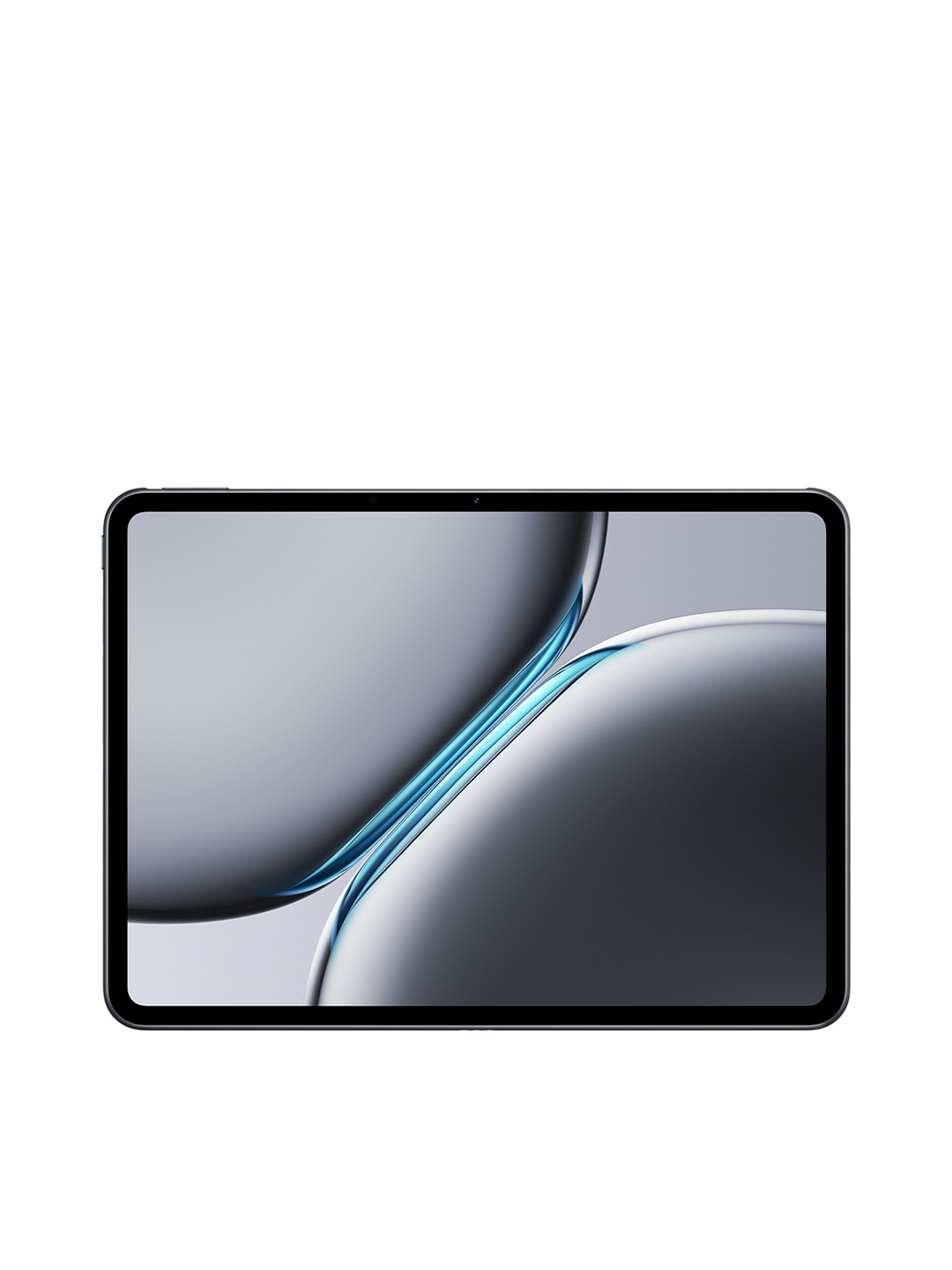Air Purifier Vs Air Humidifier: Which One Does Your Home Really Need?

We all know the importance of clean air for our health and comfort, but many of us overlook the air quality inside our own homes. It's easy to assume that the air in your home is always clean, after all, you're indoors, right? However, dust, pet dander, pollen, and even bacteria can accumulate, negatively affecting air quality. On the other hand, dry indoor air, especially in winter, can cause discomfort ranging from dry skin to respiratory issues. This is where air purifiers and humidifiers come into play.
Both devices promise to improve the air we breathe, but each serves a distinct purpose. An air purifier works to clean the air of pollutants and allergens, while a humidifier adds moisture to the air to prevent dryness. But which one do you actually need? The answer depends on various factors, from your health conditions to the climate in which you live. This article will help you navigate the decision-making process and determine which device is most beneficial for your home.
1. Understanding The Purpose: What Do They Do?
Before we dive into the details, let's clarify the core functions of air purifiers and humidifiers. While both aim to improve air quality, they do so in entirely different ways.
An air purifier's primary job is to remove airborne pollutants and particles from the air. These devices filter out dust, pet dander, smoke, pollen, and bacteria, making the air you breathe cleaner and healthier. They work by pulling air through a filter that traps pollutants before pushing clean air back into the room. The most effective air purifiers use HEPA (High-Efficiency Particulate Air) filters, which are designed to capture 99.97% of particles as small as 0.3 microns in size.
In contrast, a humidifier adds moisture to dry air, increasing the humidity levels in a room. This is particularly important during winter months when indoor air tends to become dry due to heating systems. By releasing water vapour, a humidifier helps maintain optimal moisture levels, which can improve skin hydration, prevent irritation in your throat and nasal passages, and make breathing easier. There are different types of humidifiers, including cool mist humidifiers, warm mist humidifiers, and ultrasonic humidifiers, each offering different methods of adding moisture to the air.
In short, an air purifier is a cleaner for your air, while a humidifier is a moisturiser for the air. If you need cleaner air free from pollutants and allergens, an air purifier is your best choice. If you're dealing with dry air that causes discomfort, a humidifier will restore balance and ease your symptoms.
2. Health Benefits: Who Needs What?
Health considerations play a huge role in choosing between an air purifier and a humidifier. While both devices contribute to better air quality, their health benefits differ significantly. Depending on your specific needs, one may be more beneficial than the other.
- Allergies and Asthma: If you or someone in your household suffers from allergies or asthma, an air purifier is crucial. These devices help reduce airborne allergens like dust mites, pollen, pet dander, and mould spores, common triggers for allergy and asthma attacks. A high-quality air purifier with a HEPA filter can significantly improve indoor air quality, helping to reduce symptoms such as sneezing, wheezing, and coughing.
- Respiratory Conditions And Colds: During colder months, dry air can irritate your throat and nasal passages, exacerbating respiratory issues. A humidifier is ideal for adding moisture to the air, preventing dryness in your sinuses and throat, which can lead to congestion or even nosebleeds. For those who frequently suffer from colds or dry coughs, a humidifier can help alleviate these symptoms by keeping the airways moist and reducing irritation.
- Skin and Eye Irritation: Dry air is not just an inconvenience for your lungs, it can also wreak havoc on your skin and eyes. Prolonged exposure to dry indoor air can lead to itchy skin, cracked lips, and dry eyes. If you're prone to eczema or sensitive skin, a humidifier can help keep your skin hydrated. Adding moisture to the air can also prevent your eyes from becoming dry and itchy, which is especially helpful for those who spend long hours in air-conditioned or heated rooms.
- Dry Throat And Snoring: Another health benefit of a humidifier is its ability to alleviate dry throat and reduce snoring. Dry air can irritate the throat, causing discomfort and a sore throat. By adding moisture, a humidifier can soothe the throat and help reduce snoring, particularly in individuals who snore due to dryness in the nasal passages.
- Sleep Quality: Both devices can play a role in improving sleep quality. An air purifier can remove allergens and pollutants that may trigger sleep disturbances, while a humidifier creates a more comfortable sleeping environment by preventing dry air from causing discomfort during the night. People with chronic sinus issues, dry skin, or breathing problems often find that using a humidifier before bed helps them sleep more soundly.
In summary, if you suffer from allergies, asthma, or other respiratory conditions, an air purifier is your best option. On the other hand, if you're dealing with dry skin, eye irritation, or a dry throat, a humidifier can provide significant relief. In some cases, using both devices together can offer the most comprehensive health benefits.
3. Seasonal Impact: When Do You Need Each?
The seasonal conditions in your area can greatly influence which device you should use in your home. Depending on the time of year, the air in your home may be too dry or filled with pollutants, making either an air purifier or a humidifier more essential.
- Winter Months: During winter, the combination of colder outdoor temperatures and indoor heating systems can significantly lower humidity levels in your home. This leads to dry skin, irritated sinuses, and a scratchy throat. In these cases, a humidifier becomes crucial to restoring moisture to the air. Humidifiers can prevent your skin from drying out, reduce nasal congestion, and make your living space more comfortable.
- Spring and Summer: As the weather warms, pollen levels rise, and outdoor pollution increases. If you live in an area prone to high pollen counts, an air purifier becomes invaluable. Air purifiers equipped with HEPA filters can capture these microscopic pollen particles, which are one of the most common triggers for allergies. Similarly, if you live in an urban area with high levels of smog or other pollutants, an air purifier can help keep the air clean indoors, ensuring that your home remains a safe haven from outside air quality issues.
- Autumn: Fall brings its own set of challenges, with mould spores, dust, and fallen leaves that can create a mess both indoors and outdoors. An air purifier can help to tackle airborne irritants that can worsen allergy symptoms during this time. However, while temperatures are still mild, it's a good idea to keep humidity levels in check, as well, especially if you live in a particularly dry area. A humidifier can help balance the air, especially if your indoor heating systems are starting to dry things out.
Ultimately, the best way to decide which device to use is to pay attention to the seasons in your area. During the colder months, a humidifier will provide relief from dry air. In spring and summer, an air purifier will help clear out pollen and pollution.
4. Household Suitability: Which One Fits Your Home Best?
Different homes and families have different needs when it comes to air quality. The choice between an air purifier and a humidifier also depends on your household's specific circumstances.
- Pet Owners: If you have pets, especially cats or dogs, an air purifier is essential. Pet dander is a common allergen, and air purifiers with HEPA filters are great at capturing these tiny particles before they circulate throughout your home. If you don't want to be constantly sneezing and sniffling around your furry friends, investing in an air purifier will make a big difference.
- Newborns And Babies: Babies have very delicate respiratory systems, and they are particularly vulnerable to poor air quality. If you live in a city or area with high levels of dust or pollutants, an air purifier can help protect your baby's lungs from harmful particles. On the other hand, if your home is too dry, a humidifier can help keep your baby's skin and airways hydrated, promoting better sleep and overall comfort.
- Older Homes vs. Newer Homes: Older homes, especially those with poor ventilation, tend to have more dust, allergens, and even mould. If you live in an older home, an air purifier can help remove these airborne contaminants and improve the overall air quality. On the other hand, newer homes, particularly those with modern insulation and sealed windows, can become very dry during the winter months. In such cases, a humidifier can help to prevent the air from becoming too dry, keeping you comfortable throughout the colder months.
- Urban vs. Rural Living: People who live in urban environments with high levels of pollution and smog will benefit greatly from an air purifier. These devices can help filter out harmful particles from traffic, construction, and industrial pollution, improving indoor air quality. In contrast, people who live in rural areas, where the air is generally cleaner but can be dry, will likely find a humidifier more beneficial for keeping the air moist and comfortable.
5. Maintenance And Upkeep: The Hidden Workload
When choosing between an air purifier and a humidifier, it's important to consider the maintenance requirements of each device. While they both have significant benefits, they also come with a certain level of upkeep.
- Air Purifiers: One of the key maintenance tasks for air purifiers is changing the filters. Depending on the model and usage, filters may need to be changed every 3–12 months. HEPA filters, in particular, can get clogged with dust, allergens, and other particles, reducing the purifier's efficiency. Neglecting to replace filters can lead to less effective air purification, or worse, cause the purifier to release trapped dust and allergens back into the air. Regular filter maintenance ensures your air purifier works optimally.
- Humidifiers: Humidifiers require regular cleaning to avoid the growth of mould and bacteria. If you don't clean the water tank frequently, harmful microorganisms can breed and be dispersed into the air, negating any health benefits. Depending on the model, the water tank should be emptied and cleaned every few days, and the humidifier should be thoroughly disinfected weekly. Using distilled or purified water can also help reduce mineral buildup inside the device, keeping it working efficiently.
6. Can You Use Both? The Best Of Both Worlds
In some cases, using both an air purifier and a humidifier can provide the best solution for maintaining healthy indoor air quality. For example, during the winter, you may need a humidifier to add moisture to the air, but also want an air purifier to remove allergens, dust, and other pollutants.
When using both devices, make sure they're placed in different areas of the room to prevent them from interfering with each other. A humidifier can add moisture to the air, while the air purifier will clean the air without being affected by excess moisture.
7. Energy Consumption: Which One Is More Efficient?
If you plan to use an air purifier or humidifier regularly, energy efficiency is an important factor to consider. No one wants a device that significantly increases electricity bills, so let's compare their power consumption.
- Air Purifiers: Most air purifiers consume between 20–200 watts depending on their size, efficiency, and settings. HEPA-filter purifiers tend to use more energy due to the powerful fans required to pull air through the dense filters. Some high-end purifiers also have additional features like UV-C light or ionization, which may slightly increase energy consumption. However, modern air purifiers are designed to be energy-efficient, with some consuming as little as a standard light bulb.
- Humidifiers: A humidifier's energy consumption varies depending on the type. Cool mist humidifiers generally use between 30–50 watts, making them relatively low-energy devices. Warm mist humidifiers, however, require more power, ranging from 200–400 watts, because they heat water to create steam. Ultrasonic humidifiers are the most energy-efficient option, as they use high-frequency vibrations to produce mist with minimal electricity consumption.
When it comes to energy efficiency, air purifiers tend to use more power than humidifiers, but the difference isn't drastic unless the purifier is running on high settings 24/7. If energy consumption is a concern, choosing an Energy Star-rated air purifier or an ultrasonic humidifier can help keep electricity usage to a minimum.
8. The Final Decision: Which One Should You Choose?
By now, you should have a solid understanding of how air purifiers and humidifiers differ, but let's summarise everything to make your final decision easier.
Choose an Air Purifier if:
- You suffer from allergies or asthma and need to remove airborne allergens like dust, pollen, or pet dander.
- You live in a city with high pollution levels and want cleaner indoor air.
- You have pets and need to reduce pet hair and dander in the air.
- You or your family members are sensitive to airborne viruses, bacteria, or mould spores.
- You want a year-round solution for improving air quality.
Choose a Humidifier if:
- You experience dry skin, itchy eyes, or cracked lips due to low humidity.
- You live in a cold or dry climate where indoor heating dries out the air.
- You suffer from sinus issues, congestion, or frequent nosebleeds due to dry air.
- You have a baby or young child and want to maintain optimal humidity for better sleep.
- You want a seasonal solution, especially for winter dryness.
When Should You Use Both?
In many cases, using both an air purifier and a humidifier in the same space provides the best indoor air quality. Here are some scenarios where it makes sense to use both:
- Winter Months: The air is dry due to heating systems, but dust and allergens are still present. A humidifier keeps the air moist, while an air purifier removes irritants.
- Allergy and Asthma Sufferers: A humidifier can ease respiratory discomfort, while an air purifier ensures allergens aren't floating around.
- Homes with Babies or Elderly Family Members: Both clean air and proper humidity levels are essential for vulnerable individuals.
- Pet Owners in Dry Climates: Pets introduce dander into the air, which an air purifier can remove, while a humidifier prevents dry air from irritating their skin and noses.
If you decide to use both, place them at least a few feet apart to prevent excess moisture from affecting the air purifier's filter.
Products Related To This Article
1. onpoint Cool Mist, Night Color Light for Bedroom
2. AGARO caspian Humidifier 1.7 L Room Air Purifier
3. Reffair Caligo 70 Plus Cool Mist Smart Humidifier 3L LED Display Room Air Purifier White Portable Room Air Purifier
4. Deerma Room Ultrasonic Humidifier Manual Air Purifier Rotatable with Filter for Office
5. Rosemoore Ultrasonic Humidifier Aroma Diffuser with 7 Color LED Lights Portable Room Air Purifier
6. Dr Trust USA Zurich HEPA Filter UV 4 Stage Filtration Air Quality Indicator Portable Room Portable Room Air Purifier
7. Honeywell Air Touch V2 3 Stage Filtration
8. PHILIPS AC0920/60 Portable Room Air Purifier
9. Mi AC-M17-SC AP4 Lite Portable HEPA And Carbon Filter Room Air Purifier
10 Qubo Q200 Smart Room Air Purifier
If your main concern is allergens, pollutants, or pet dander, an air purifier is the right choice. If you struggle with dry air, irritated skin, or sinus issues, a humidifier will provide relief. And in some cases, using both together can create the perfect indoor environment for comfort and health. No matter which option you choose, investing in better indoor air quality is always a good decision. After all, breathing well and feeling comfortable in your own home is something no one should compromise on.
Disclaimer: The images used in this article are for illustration purpose only. They may not be an exact representation of the products, categories and brands listed in this article.







![Powerful Apple Watch 9 [GPS+Cellular] now discounted 28% on Amazon with exchange offers.](https://c.ndtvimg.com/2025-04/e9mvlag_apple-watch-9_625x300_21_April_25.jpg?im=FitAndFill,algorithm=dnn,width=246,height=200)


